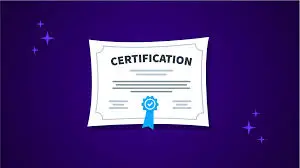Course Overview
The Advanced Legal and Legislative Drafting Training Course is meticulously designed for legal professionals, parliamentary counsel, government officials, and policy advisors who are actively involved in the intricate process of creating and refining legal texts. This course delves into the sophisticated techniques and principles of legislative drafting, moving beyond basic concepts to focus on clarity, precision, coherence, and constitutional compliance in complex legal instruments. Participants will engage with advanced drafting challenges, explore the impact of legislative choices on policy outcomes, and master the art of crafting laws that are both effective and legally sound.
Duration
10 Days
Target Audience
- Senior Legal Professionals in Government Ministries and Departments
- Parliamentary Counsel and Legislative Drafters
- Legal Officers in Regulatory Agencies
- Policy Analysts and Advisors involved in Law Reform
- Judges and Senior Court Officials
- Advocates and Solicitors specializing in Public Law
- Academics and Researchers in Legislative Studies
- Senior Civil Servants responsible for Policy Implementation
- International Legal Consultants
Personal Impact
- Master advanced techniques for drafting complex and unambiguous legal texts.
- Enhance critical analytical skills for evaluating legislative proposals and existing laws.
- Gain confidence in navigating constitutional nuances and judicial interpretation in drafting.
- Develop a deeper understanding of the interplay between policy intent and legal expression.
- Strengthen professional standing as an expert in legislative drafting and legal reform.
Organizational Impact
- Production of clearer, more effective, and legally robust legislation and legal instruments.
- Reduced litigation risks and challenges due to ambiguous or poorly drafted laws.
- Improved efficiency in legislative processes and faster implementation of policy goals.
- Enhanced reputation of the legislative body or legal department for drafting excellence.
- Stronger compliance and enforceability of regulations across various sectors.
Course Outline
Course Objectives
By the end of this training, participants will be able to:
- Apply advanced principles of legislative drafting, including techniques for clarity, precision, and consistency.
- Critically analyze policy intentions and translate them into legally enforceable provisions.
- Structure complex legislative instruments effectively, incorporating amendments and repeals seamlessly.
- Draft provisions that anticipate judicial interpretation and reduce ambiguity.
- Incorporate constitutional principles, human rights considerations, and international obligations into domestic legislation.
- Develop strategies for effective consultation and stakeholder engagement in the drafting process.
- Utilize legislative preambles, interpretation clauses, and savings provisions effectively.
- Understand the role of gender-sensitive and inclusive language in legislative drafting.
- Conduct thorough legal reviews and impact assessments of draft legislation.
- Manage the legislative lifecycle from policy conception to enactment and review.
Course Modules
Course Modules
Module 1: Advanced Principles of Legislative Drafting
- Review of core drafting principles: clarity, conciseness, consistency, precision.
- Mastering the use of definitions, substantive provisions, and procedural clauses.
- Techniques for avoiding ambiguity, vagueness, and redundancy.
- Drafting for different legislative styles and traditions (e.g., common law vs. civil law approaches).
- The legislative sentence: structure, syntax, and punctuation for legal effect.
- Hands-on Exercise: Redraft a complex, ambiguous legal clause to improve its clarity and precision.
Module 2: Translating Policy into Law and Impact Assessment
- Deep dive into policy analysis for legislative drafting.
- Understanding the legislative intent and its accurate reflection in legal text.
- Regulatory Impact Assessment (RIA) as a drafting tool: process and application.
- Ex-ante and ex-post evaluation considerations in drafting.
- Drafting for specific policy outcomes and behavioral changes.
- Case Study: Analyze a policy document and collaboratively draft initial legislative provisions to achieve its stated objectives, followed by a brief impact assessment.
Module 3: Structuring Complex Legislation and Amending Acts
- Advanced techniques for organizing long and complex statutes.
- Drafting schedules, annexes, and regulations.
- Principles and methods for drafting amending Acts: direct vs. indirect amendment.
- Techniques for consolidation and repeal.
- Drafting transitional provisions and savings clauses.
- Hands-on Exercise: Draft an amending Bill for an existing principal Act, incorporating multiple changes and transitional provisions.
Module 4: Constitutional Law and Legislative Drafting
- Entrenchment of constitutional principles in ordinary legislation.
- Drafting legislation that withstands constitutional scrutiny.
- Incorporation of human rights and fundamental freedoms.
- Drafting in relation to devolution/federalism and division of powers.
- Judicial review and its implications for legislative drafting.
- Case Study: Review a constitutional court judgment challenging a piece of legislation and identify drafting weaknesses that led to the challenge.
Module 5: International Law and Treaty Implementation
- Incorporating international conventions and treaties into domestic law.
- Drafting for consistency with international obligations.
- Monist vs. dualist approaches to treaty implementation.
- Challenges of drafting for compliance with evolving international standards.
- The role of international legal advice in the drafting process.
- Hands-on Exercise: Draft a section of a Bill to implement a specific international treaty provision into national law.
Module 6: Language, Style, and Inclusivity in Drafting
- Advanced legal English and stylistic considerations in drafting.
- Gender-sensitive and inclusive language in legislation.
- Drafting for different audiences: legal practitioners, public, enforcement agencies.
- Use of plain language principles without sacrificing legal precision.
- Avoiding jargon and technical terms where alternatives exist.
- Hands-on Exercise: Re-draft a piece of legislation using more inclusive and plain language while maintaining legal accuracy.
Module 7: Drafting for Enforcement and Compliance
- Crafting effective enforcement provisions: offences, penalties, powers of entry.
- Drafting for effective regulatory compliance mechanisms.
- Evidentiary provisions and presumptions.
- Administrative sanctions and appeals.
- Challenges in drafting for digital enforcement and new technologies.
- Case Study: Analyze the enforcement provisions of a specific regulatory Act and discuss their effectiveness and potential weaknesses.
Module 8: Legislative Process and Stakeholder Engagement
- Deep dive into the legislative process: from concept to enactment.
- Strategies for effective consultation with stakeholders: public, industry, civil society.
- Managing legislative committees and parliamentary debates.
- The role of the parliamentary counsel and legal advisors.
- Post-enactment review and legislative sunset clauses.
- Study Tour (Virtual/Video): A virtual tour of a Parliament building, focusing on the legislative drafting department and committee rooms.
Module 9: Legislative Interpretation and Drafting Aids
- Rules of statutory interpretation: literal, golden, mischief, purposive approach.
- The use of preambles, long titles, and interpretation clauses as drafting aids.
- Extrinsic aids to interpretation: parliamentary debates, reports.
- Drafting for future amendment and adaptability.
- The impact of technology on legislative drafting and access to legislation.
- Hands-on Exercise: Interpret a complex legal provision using different rules of statutory interpretation and discuss potential ambiguities.
Module 10: Advanced Drafting Challenges and Future Trends
- Drafting for complex regulatory regimes (e.g., environmental, financial services).
- Legislative responses to emerging technologies (AI, blockchain, cybersecurity).
- Harmonization of laws in regional blocs.
- Drafting for emergencies and exceptional circumstances.
- The future of legislative drafting: AI-assisted drafting, digital legislation.
- Final Exercise: Participants draft a short, complex legislative instrument addressing a contemporary policy challenge (e.g., regulation of specific AI use cases, climate change adaptation) and present their drafting choices.
Related Courses
Course Administration Details
Methodology
These instructor-led training sessions are delivered using a blended learning approach and include presentations, guided practical exercises, web-based tutorials, and group work. Our facilitators are seasoned industry experts with years of experience as professionals and trainers in these fields. All facilitation and course materials are offered in English. Participants should be reasonably proficient in the language.
Accreditation
Upon successful completion of this training, participants will be issued an Indepth Research Institute (IRES) certificate certified by the National Industrial Training Authority (NITA).
Training Venue
The training will be held at IRES Training Centre. The course fee covers the course tuition, training materials, two break refreshments, and lunch. All participants will additionally cater to their travel expenses, visa application, insurance, and other personal expenses.
Accommodation and Airport Transfer
Accommodation and Airport Transfer are arranged upon request. For reservations contact the Training Officer.
Tailor-Made
This training can also be customized to suit the needs of your institution upon request. You can have it delivered in our IRES Training Centre or at a convenient location. For further inquiries, please contact us on:
Payment
Payment should be transferred to the IRES account through a bank on or before the start of the course. Send proof of payment to outreach@indepthresearch.org
Click here to register for this course.
Register NowCustomized Schedule is available for all courses irrespective of dates on the Calendar. Please get in touch with us for details.
Customize AttendanceDo you need more information on our courses? Talk to us.

















